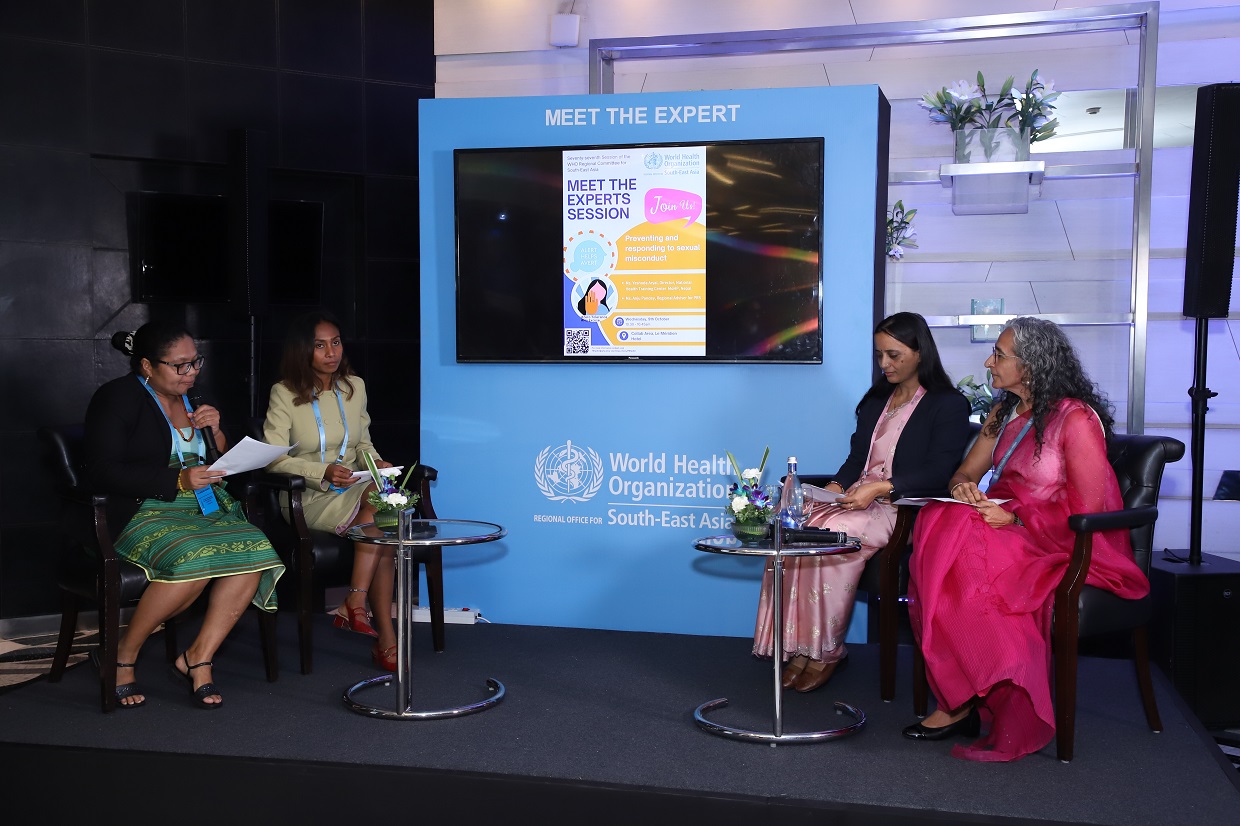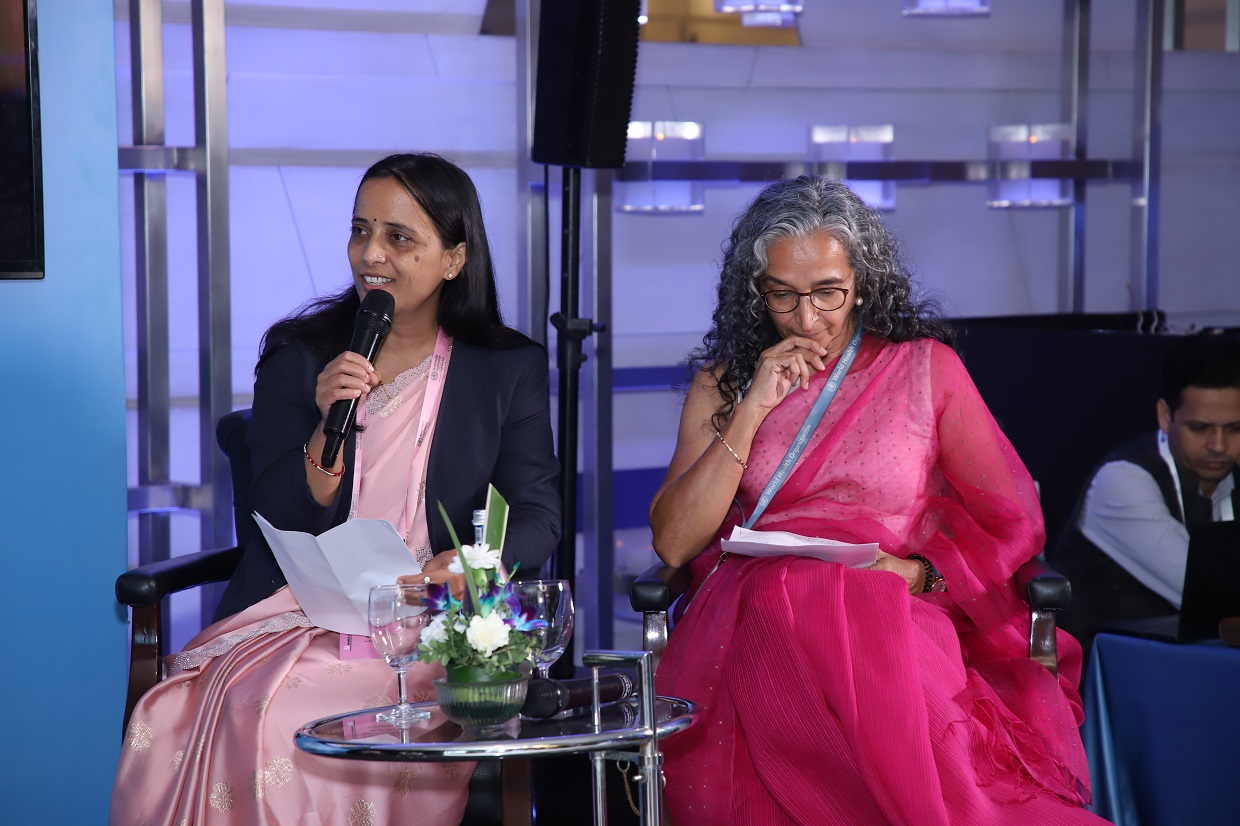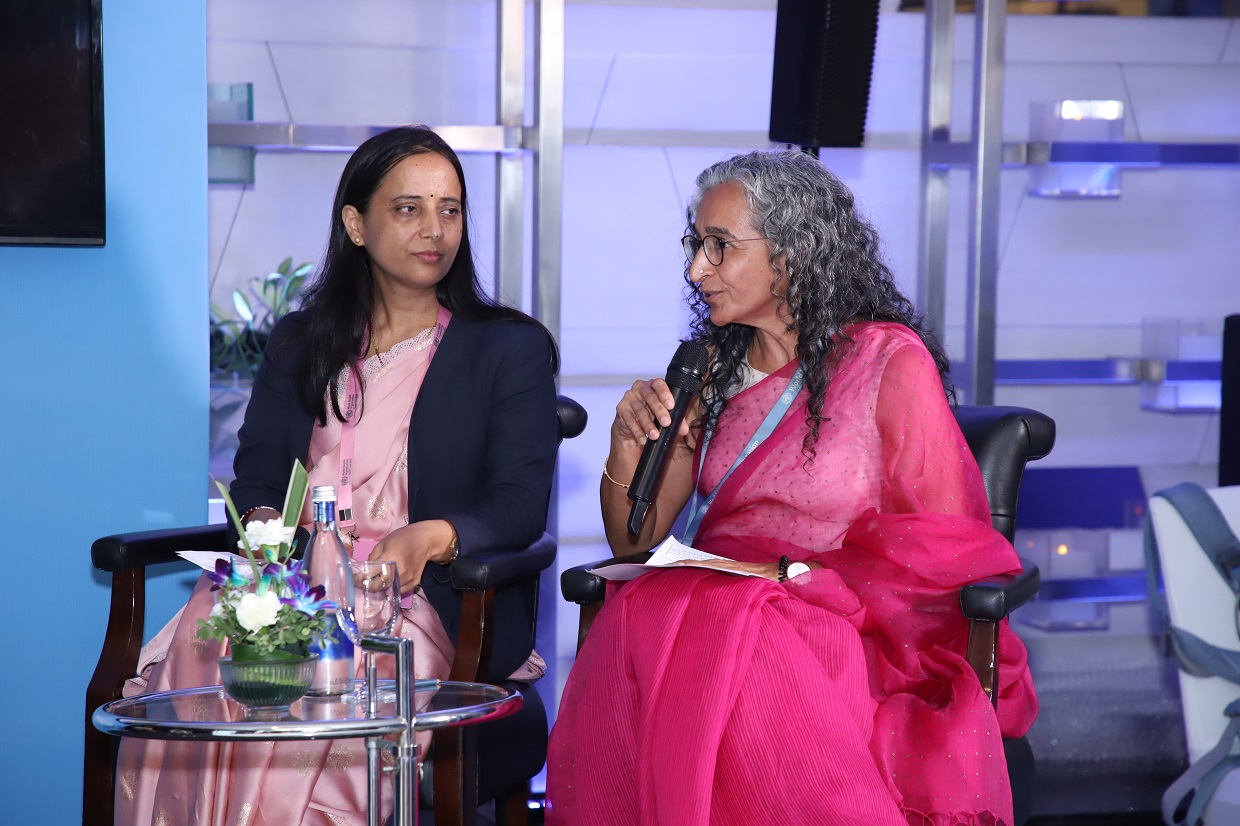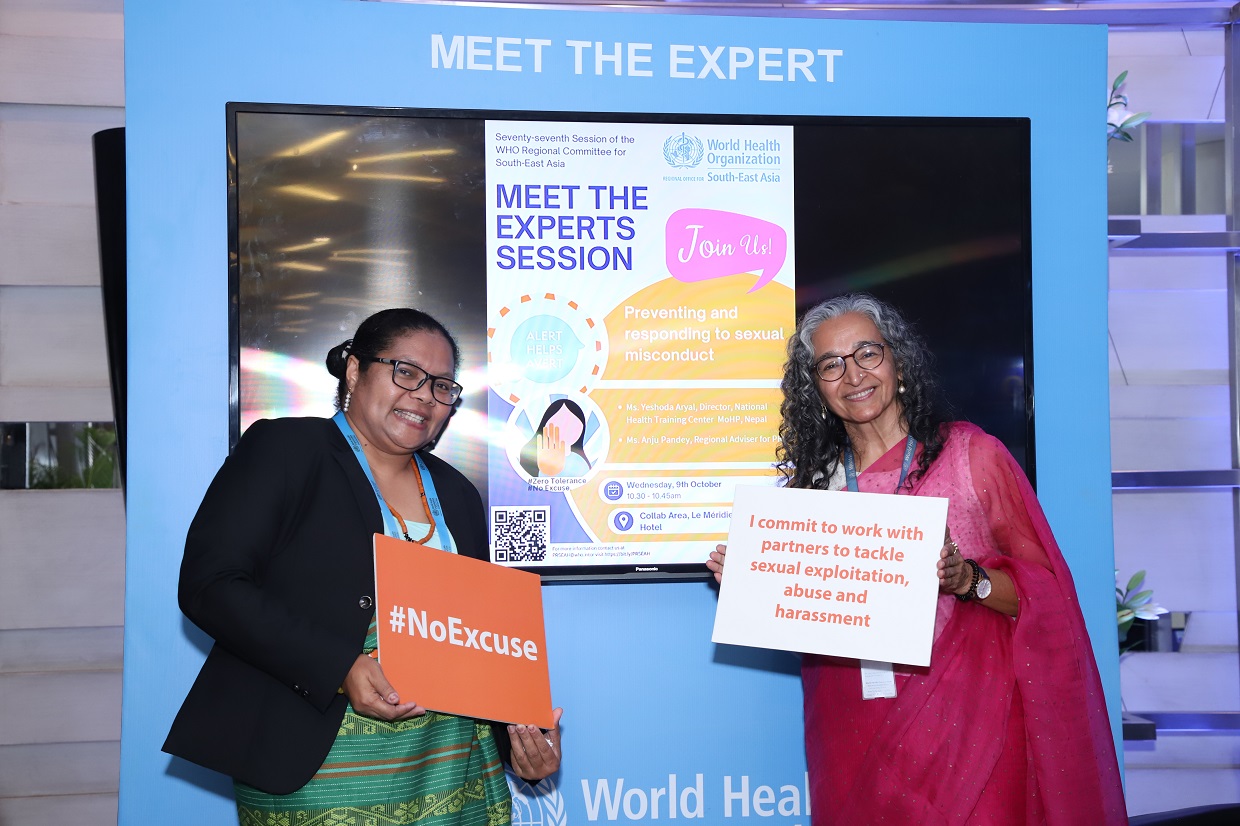On the sidelines of the last day of WHO South-East Asia Regional Committee, ‘the Meet the Expert’ session focused on prevention and response to sexual misconduct in the workplace, especially in the healthcare sector. The speakers Yeshoda Aryal, Director, National Health Training Center of the Ministry of Health and Population (MoHP), Nepal, and Anju Pandey, Regional Advisor for Prevention and Response to Sexual Misconduct (PRS), from WHO SEARO. 
(Experts discuss prevention and response to sexual misconduct in healthcare sector at the 'Meet the Expert' session during RC77, New Delhi. Photo credit: WHO SEARO)
Sharing Nepal’s initiatives, Ms Aryal said the country has a strong legal foundation for prevention of sexual misconduct including constitutional mandate for dignified life, and protection against violence and exploitation. There is the Criminal Code, Sexual Harassment at Workplace Act (2014), the Labour Act (2017), and laws to protect everyone, especially women and girls, against online harassment. These provide safeguards for the workforce, and the public in general. With WHO’s support, the MoHP conducted an orientation for senior officials on prevention of sexual misconduct, and reporting mechanisms if they happen. More than 40 senior officials have received the orientation, and have trained their team members. The Ministry intends to orient other divisions as well. The National Health Training Center will incorporate the orientation session as a regular part of its training programs. 
(Ms Yeshoda Aryal, Director, National Health Training Center of the Ministry of Health and Population (MoHP), Nepal, discuss prevention and response to sexual misconduct in healthcare sector at the 'Meet the Expert' session during RC77, New Delhi. Photo credit: WHO SEARO)
Additionally, a video on key provisions of the Sexual Harassment at Workplace Act and reporting mechanisms for incidences is being developed which is to be included in all trainings conducted at the Center, Ms Aryal said. Several mechanisms are in place including the one-stop crisis management center and gender-based violence (GBV) hotline. Code of conduct and behavioral protocol especially for healthcare workers are being developed with support from WHO, she said.
However, despite the intentions, the existence of legal foundation, and programmatic interventions, challenges that impact progress remain. The patriarchal value system and the culture makes it difficult to have an open discussion on sexual misconduct. Hierarchy within organizations and existing gender barriers make it difficult reporting incidents. Developing encouraging and supportive environment so that survivors do not face victim-blaming and stigma is a work in progress. Another challenge is the funding limitation. One-stop crisis management centers, hotlines, and other initiatives are all under-funded. To ensure that services are adequately provided, all initiatives must be fully funded, with trained human resources throughout the country. Lastly, a challenge that Ms. Aryal feels is hampering progress in this work is the culture of victim-blaming.
Ms. Pandey shared that WHO has policies and procedures on preventing and
addressing sexual misconduct, new code of ethics, and policy on retaliation. The guiding frameworks are in place. There is a three-year strategy with clear result areas and activities identified, and an accountability framework which defines accountability from the Director-General down to all staff, and implementing partners, contractors, etc. These strategies and frameworks are mainstreamed into all WHO priority programs. The third fundamental shift has been in WHO’s approach which moved from risk-averse organization to a risk-based one. When it comes to prevention of and response to sexual misconduct, governance, ethics, and values are all cross-cutting along with all departments and programs. Lastly, what has changed is the awareness that this cannot be done alone; collaborators and partners are needed. 
(Ms Anju Pandey, Regional Advisor for Prevention and Response to Sexual Misconduct (PRS), WHO Regional Office for South-East Asia, at the 'Meet the Expert' session during RC77, New Delhi. Photo credit: WHO SEARO)
Recognizing the importance of collaboration, WHO has identified three areas to strengthen collaboration with Member States. First, are policies such as code of conduct, standards of expected behavior, and prevention and response measures. Secondly, there are training and sensitization such as the ones National Heath Training Center in Nepal is carrying out, to create awareness and knowledge. Third area is fostering a victim / survivor centered approach, recognizing that it is imperative to place their voices, choices, and agency first. This includes in incident management capacity including victim support, investigation, disciplinary measures, etc.
The short yet informative session on prevention and response to sexual misconduct ended with a question to the audience: ‘what will you do when you're witnessing sexual misconduct?’ from an active bystander’s perspective. The responses ranged from speaking up, listen, believe, support, and report. The last Meet the Experts session of #RC77 ended with the audience and speakers continuing the conversation well after the session officially concluded.

(Meet the Expert session on prevention and response to sexual misconduct in healthcare sector on the sidelines of RC77, New Delhi. Photo credit: WHO SEARO)
